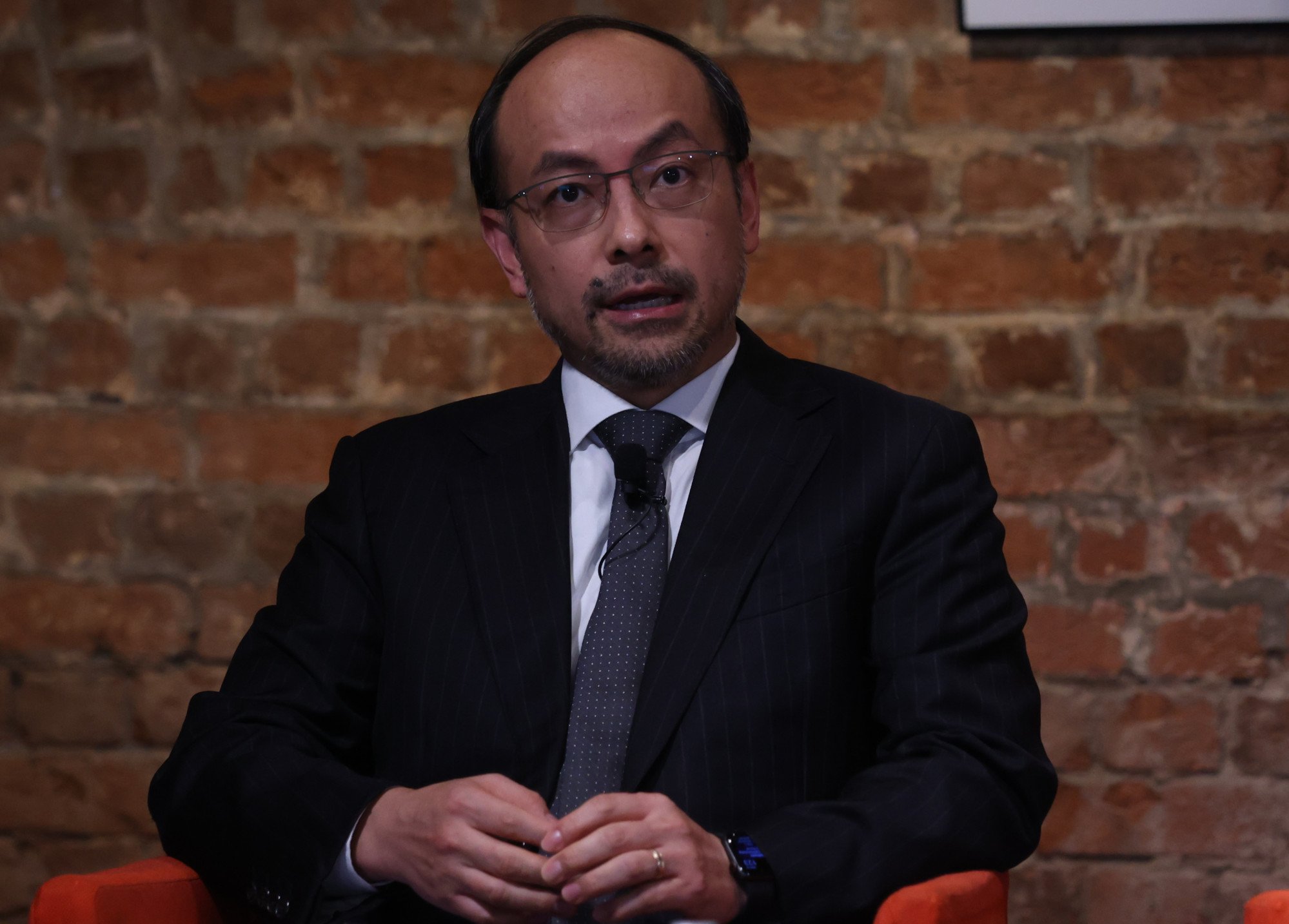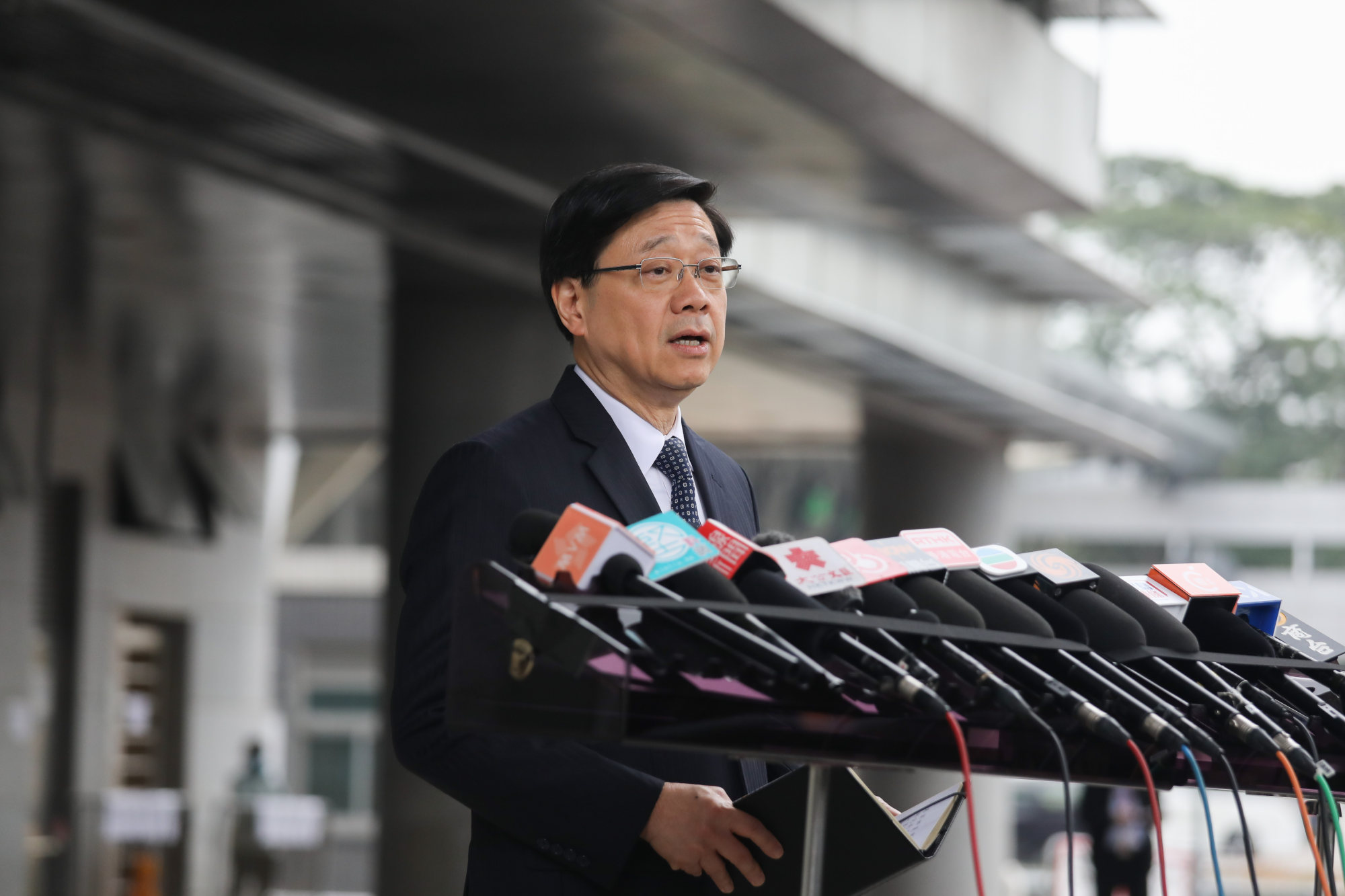
Unpacking the extra powers the new Article 23 domestic national security bill will give to Hong Kong Chief Executive John Lee and his cabinet
- Lawmakers approved 47 amendments to Safeguarding National Security Bill after the government proposed them the previous night
- One of the most notable clauses empowers chief executive in council to make subsidiary legislation ‘for the needs of’ safeguarding national security
Lawmakers approved 47 amendments to the Safeguarding National Security Bill, mandated under Article 23 of the city’s mini-constitution, the Basic Law, on Thursday after the government proposed them the previous night.
One of the most notable clauses, which the government said was introduced after taking into account lawmakers’ views, empowers the chief executive in council – the city leader acting after consulting the key decision-making Executive Council – to make subsidiary legislation “for the needs of” safeguarding national security.
The amendment said such subsidiary legislation would also be made for the “better carrying into effect” of the Article 23 law and the Beijing-decreed national security law imposed on Hong Kong in 2020, including its provisions regarding the mandate of Beijing’s national security arm in the city.
New offences under the subsidiary legislation could result in a maximum penalty of seven years’ jail and a HK$500,000 (US$63,910) fine. Such legislation can be enacted first and scrutinised by the legislature later under a procedure known as negative vetting.
Hong Kong’s Article 23 bill moves to next stage after amendments toughen law
Under such powers, the chief executive after consulting Exco, may also, by introducing subsidiary legislation, specify a class of people as public officers to broaden the scope of this category in relation to the offences of incitement to disaffection or state secrets.
Professor Simon Young Ngai-man of the University of Hong Kong’s law school, said the new power to make subsidiary legislation conferred on the chief executive in council was “concerning” because it lacked the usual delineation of specific areas to which the power might be applied.
“The scope is open-ended and can breed regulations for the ‘better carrying into effect of’ the relevant national security laws,” he said.

Young noted that criminal offences could also be introduced to improve implementation of the law, which made the penalties a “little concerning” even though they were comparable to those the city leader might create under the UN Sanctions Ordinance.
“The only sense of relief is that any new regulations must be subject to negative vetting by Legco so legislators will have the final say on whether they remain law,” he said.
The new clause also allows the chief executive to make subsidiary legislation in relation to the 2020 Beijing-imposed law, including where it pertains to the mandate of the central government’s national security arm in the city.
Former Basic Law Committee member Professor Albert Chen Hung-yee said this aspect of the new clause might relate to the procedures and operations of that office.
“It will facilitate its activities under Chapter 5 [of the national security law], including the exercise of its power to investigate relevant cases and to arrange for suspects in such cases to be transferred to mainland China for trial,” he said.
Hong Kong’s Article 23 bill could be law just days after review of clauses ends
Article 55 under Chapter 5 stipulates that Beijing’s national security office can “exercise jurisdiction over a case” concerning offences endangering national security. So the subsidiary legislation ties the bill more closely to the Beijing-imposed national security law in their implementation.
Former director of public prosecutions Grenville Cross said the new powers for the chief executive were in line with what was contemplated by the national security law.
He also noted there were precedents for the chief executive in council to enjoy such powers, pointing to the Emergency Regulations Ordinance which then leader Carrie Lam Cheng Yuet-ngor invoked in 2019 to impose a mask ban at the height of the civil unrest that year.
“The current situation is, therefore, not novel, and I believe there are also similar precedents in other common law jurisdictions,” Cross said
He added that any “improper” exercise of power would be judicially reviewable, similar to Lam exercising her emergency powers in 2019, which was also challenged in the courts.

Exco member Ronny Tong Ka-wah, a senior counsel, dismissed concerns the measure would allow unlimited expansion of the executive branch’s power, saying it was instead a “careful move” to ensure it could respond to unforeseen circumstances.
“The scope of the power granted to the government will not exceed the range of the provision that it was subsidiary to … the power will not be unlimited,” he said.
“It will also be subject to monitoring by the legislature, even if it is by a negative vetting procedure, because it can repeal it.”
Tong said subsidiary legislation normally empowered enforcement agencies to implement administrative measures or regulations and was not a separate criminal offence.
But he agreed the government should further explain to the public the purpose of having subsidiary legislation and how it would be used.
On Thursday, officials did not offer much clarity on the scope of the subsidiary legislation the city leader could introduce under such clauses, merely saying it might cover “implementation details” and “administrative regulations”.
‘Relax and take a deep breath’: Beijing slams US paper over Hong Kong editorial
Daphne Siu Man-suen, acting law officer at the Department of Justice, said the proposal was meant to make the system more “forward looking” so the government could lay down additional details in law implementation when new circumstances arose.
Under the Beijing-imposed law, the chief executive does not have any specific powers to enact subsidiary legislation.
But in several other areas, he has authority over such decisions as making relevant implementation rules for law enforcement authorities when investigating serious crimes, as well as certifying whether an act involves national security or if relevant evidence involves state secrets.
Another extra clause introduced as an amendment to the bill that may empower the executive branch relates to the work of the chief secretary.
Under this provision, he may provide advice or direction for promoting national security education, raising residents’ awareness of the law, or “strengthening public communication, guidance, supervision and regulation of the work” on safeguarding national security and prevention of terrorist activities.
Hong Kong minister slams newspaper’s ‘misleading’ take on Article 23 bill clause
Chief Secretary Eric Chan Kwok-ki said on Thursday it was necessary for him to have such powers in promoting education work, emphasising the need to tell residents, especially young people, the importance of national security. The government’s power would not be overly huge as it was subject to the law, he added.
Many of the amendments effectively broadens the reach of the law or grant the executive branch additional powers in safeguarding national security and implementing the sweeping legislation, which will target five new types of offences – treason; insurrection; theft of state secrets and espionage; sabotage endangering national security; and external interference.
Lawmakers completed clause-by-clause scrutiny of the domestic security legislation in six days of marathon meetings and the government amendments in another half day.
The bill will be moved to Legco’s House Committee on Friday, the final hurdle before it can be moved to have its second reading resumed and third reading completed, thereby passed.


